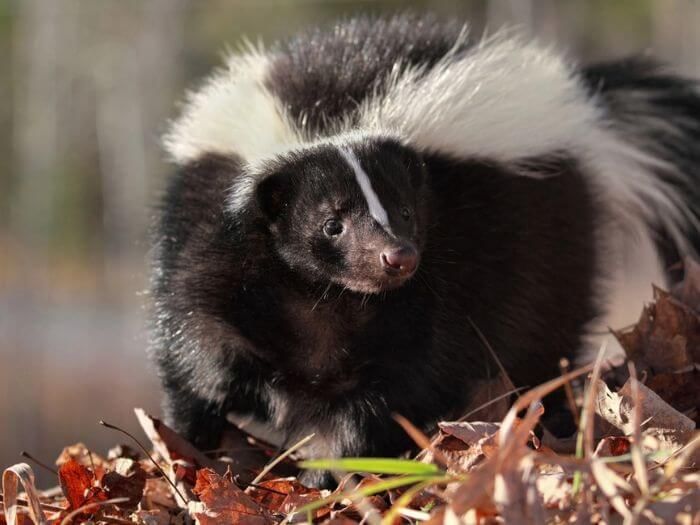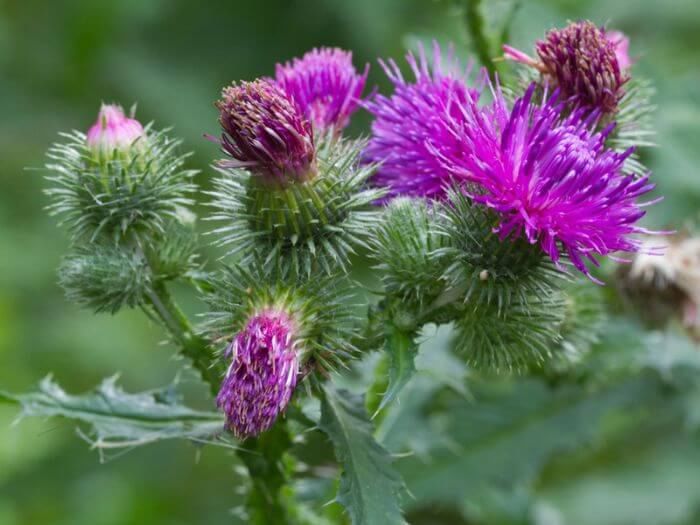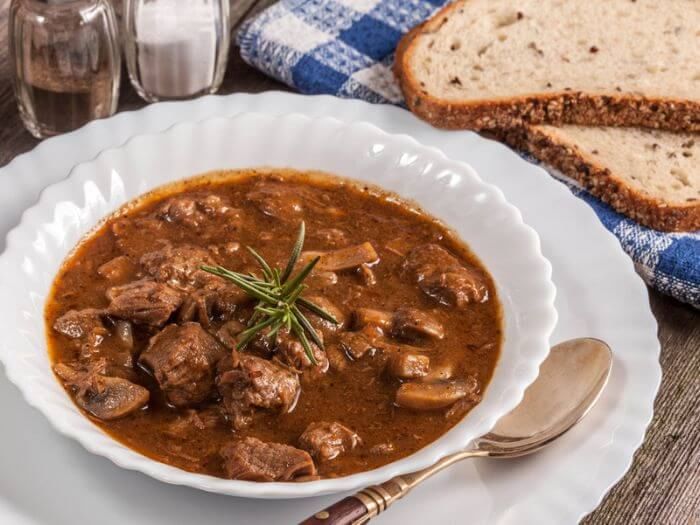LANGUAGE TRAINING CENTRE - GERMAN | ENGLISH | FRENCH | CHINESE | SPANISH | SWAHILI | KENYA SIGN LANG

Title: LANGUAGE TRAINING CENTRE - GERMAN | ENGLISH | FRENCH | CHINESE | SPANISH | SWAHILI | KENYA SIGN LANG
51 Tongue Twisters In English To Perfect Your Pronunciation
Tongue twisters in English are free speaking tools you can use at any time to improve your English pronunciation.
Think about it.
Tongue twisters challenge you to make similar sounds one after the other. They force you to say sounds that may be challenging for you. They can also show you which sounds you should practise more.
Most of all, tongue twisters in English are fun! I’ve selected just over 50 tongue twisters in English for you.
For each one, I’ll tell you which sound they help you with. I’ll give you the level of difficulty too (easy, medium, or challenging).
If there are any tricky words (which happens a lot in tongue twisters in English), I’ll explain what they mean. I’ll also give you some specific pronunciation tips for some of these and some more general ones at the end.
Get your tongue ready.
Let’s go!
1. She Sells Seashells By The Seashore

Sounds
/s/ and /ʃ/ – Spanish speakers and many international speakers of English have trouble with these two sounds.
Difficulty: Medium
Tricky vocabulary
- Seashells: shells of small creatures that live in the sea.
- Seashore: the land along the edge of the sea.
Pronunciation tip
To make the /s/ sound, smile and let the air flow out over your tongue. For the /ʃ/ bring your lips slightly forward. This should make your tongue move forward too. Let the air flow out while the sides of your tongue touch your lower teeth.
2. She Sees Cheese
Sounds
/s/, /tʃ/, and /ʃ/
Difficulty: Easy
Pronunciation tip
To make the /ʧ/ sound, press the tip of your tongue against the back of your top teeth and the sides against your upper side teeth. Briefly stop the air and then release it.
3. How Can A Clam Cram In A Clean Cream Can?
Sounds
/k/ and consonant cluster /kl/ (a consonant cluster is a group of consonant sounds)
Difficulty: Medium
Tricky vocabulary
- Clam: a shellfish that can be eaten.
- To cram: to move into a small space and make it full.
Pronunciation tip
To make the /k/ sound, place the back of your tongue against the soft part of the roof of your mouth. Draw air from your lungs to your mouth. You should feel that the air is blocked by your tongue. Release the air by lowering your tongue. This creates a little explosion of air (the /k/ sound).
4. A Skunk Sat On A Stump…

A skunk sat on a stump and thunk the stump stunk, but the stump thunk the skunk stunk.
Sounds
Consonant cluster /sk/ and /st/
Difficulty: Challenging
Tricky vocabulary
- A skunk: a small black and white animal that makes a strong unpleasant smell to defend itself when it is attacked.
- A stump: The bottom part of a tree left in the ground after the rest has fallen or been cut down.
- thunk: a ‘fake' past simple form of the verb “to thinkâ€, to make this tongue twister rhyme!
- Stunk: The past participle of “stink†(to have a strong, unpleasant smell)
This tongue twister doesn’t make much sense, so don’t worry too much about what it means.
Pronunciation tip
Can you say this as fast as you can?
5. How Much Wood Would A Woodchuck Chuck…?
How much wood would a woodchuck chuck if a woodchuck could chuck wood?
Sounds
/tʃ/ and /w/
Difficulty: Challenging
Tricky vocabulary
- A woodchuck: a small animal from the squirrel family
- To chuck: an informal way to say “to throw something carelessly or without much thought.â€
Pronunciation tip
To make the /w/ sound, bring your lips forward as if you wanted to whistle. Then let the air flow out while keeping your lips rounded.
6. Which Witch Is Which?
Sounds
/tʃ/ and /w/
Difficulty: Easy
Tricky vocabulary
- A witch: A woman who is believed to have evil powers. You may have seen her in stories. She wears a black hat and flies on a broomstick.
Pronunciation tip
Don’t pronounce the “t†in “witch†– it’s silent! So “witch†and “which†are pronounced exactly in the same way. We call these homophones: two (or more) words that have the same pronunciation but different meanings, origins, or spelling.
7. A Big Black Bear Sat On A Big Black Rug
Sounds
/b/, consonant cluster /bl/, and the vowel sound /æ/
Difficulty: Easy
Tricky vocabulary
- A rug: a small carpet that’s used for covering or decorating part of a floor
Pronunciation tip
To make the /b/ sound, draw air from your lungs and stop it with your lips. Then release it adding your voice.
The /æ/ sound may be tricky too. This is a sound that sits between the /e/ sound, the one you find in the word “pet†/pet/, and the /ʌ/ sound, the one you find in the word “cut†/kʌt/.
The secret to making the /æ/ sound is to lower your jaw just enough to avoid making the /e/ sound. If you lower it too much you’ll produce the /ʌ/ sound. Find a sweet spot in the middle.
8. Nine Nice Night Nurses Nursing Nicely
Sounds
/n/ and /ai/
Difficulty: Easy
Tricky vocabulary
- To nurse: “Nurse†is also a verb that means “to care for somebody who is ill or injured.â€
Pronunciation tip
Make the /n/ sound by pressing the tip of your tongue against your upper front teeth. Allow the air to flow out through your nose while keeping your mouth closed. To check if you’re making this sound correctly, pinch your nose. If you hear nothing, you’re doing great!
9. I Saw A Kitten Eating Chicken In The Kitchen
Sounds
/k/ and /tʃ/
Difficulty: Easy
Tricky vocabulary
- A kitten: a baby cat
10. He Threw Three Free Throws

Sounds
The infamous “th†/θ/ sound the whole world struggles with.
Difficulty: Medium
Tricky vocabulary
- A free throw: In basketball, a free throw is the equivalent of a penalty kick in football (soccer).
Pronunciation tip
Put your tongue between your teeth. Don’t stick it out too much. That’s the secret to making the “th†sound.
11. Black Back Bat
Sounds
/b/ and /æ/
Difficulty: Easy
12. I Scream, You Scream, We All Scream For Ice Cream
Sounds
Consonant cluster /skr/ and long vowel sound /iË/
Difficulty: Easy
13. If A Dog Chews Shoes, Whose Shoes Does He Choose?
Sounds
/tʃ/ and /ʃ/
Difficulty: Medium
Pronunciation tip
The position of your lips and jaw is the same when pronouncing the sounds /tʃ/ and /ʃ/. What makes these different is the quick little movement your tongue will make when pronouncing the /tʃ/ sound.
14. I Slit The Sheet, The Sheet I Slit, And On The Slitted Sheet I Sit
Sounds
/ʃ/, /s/, /iË/ and /i/
Difficulty: Medium
Tricky vocabulary
- To slit: to make a long narrow cut or opening in something.
Pronunciation tip
This is a great tongue twister for you if you have trouble differentiating the long vowel sounds /iË/ from the short /i/, and the consonant sound /ʃ/ from /s/. Practice saying this tongue twister slowly, trying to control the movement of your mouth and teeth as much as you can.
15. An Ape Hates Grape Cakes
Sounds
The diphthong /eɪ/
Difficulty: Easy
Pronunciation tip
If you’re a Chinese speaker, you might find this tongue twister particularly challenging. Make sure you lower your jaw and then raise it back to make the two vowel sounds that form the diphthong.
16. Peter Piper Picked A Peck Of Pickled Peppers
This is actually longer. The full tongue twister is the following:
Peter Piper picked a peck of pickled peppers.
A peck of pickled peppers Peter Piper picked.
If Peter Piper picked a peck of pickled peppers,
Where's the peck of pickled peppers Peter Piper picked?
Sounds
/p/
Difficulty: Challenging
Tricky vocabulary
- A peck: a unit of dry volume measurement used in the United States and the United Kingdom. In the U.S., a peck is equivalent to 8 dry quarts or about 9.09 litres.
- Pickled peppers: peppers that have been preserved in vinegar.
Pronunciation tip
Arabic speakers, remember that the /p/ sound is unvoiced. If you use your voice, you’ll make a /b/ sound.
17. Fresh French Fried Fly Fritters
Sounds
/f/ and consonant sounds /fr/
Difficulty: Medium
Tricky vocabulary
- A fritter: a piece of fruit, meat or vegetable that is covered with batter (a mixture of eggs, milk, and flour) and fried.
Pronunciation tip
To make the /f/ sound, place your front teeth on your lips and blow. But don’t use your voice, otherwise the /f/ sound becomes an /v/ sound.
18. How Much Ground Would A Groundhog Hog…?

How much ground would a groundhog hog if a groundhog could hog ground?
Sounds
/g/
Difficulty: Medium
Tricky vocabulary
- A groundhog:​ a groundhog is also known as a woodchuck (remember tongue twister number 5?). It’s a small North American animal of the squirrel family.
- To hog: to use or keep most of something yourself and stop others from using or having it.
Pronunciation tip
To make the /g/ sound, make the /k/ sound adding your voice. (I explained how to make a /k/ sound in tongue twister number 3.)
19. Zebras Zig And Zebras Zag
Sounds
/z/
Difficulty: Easy
Tricky vocabulary
- To zigzag: to move forward by making sharp sudden turns first to the left and then to the right. (Here the verb has been separated into two different ones – “to zig†and “to zag†– to create the tongue twister.)
Pronunciation tip
To make the /z/ sound, make the /s/ sound adding your voice.
20. Scissors Sizzle, Thistles Sizzle
Sounds
/s/ and /ʃ/
Difficulty: Easy
Tricky vocabulary
- To sizzle: to make the sound of food frying in hot oil.
- A thistle: a wild plant. The thistle is the national symbol of Scotland too!
Pronunciation tip
Start slowly with this one. Once you’ve mastered it, see if you can say it as fast as you can.
21. Brisk Brave Brigadiers Brandished…
Brisk brave brigadiers brandished broad bright blades, blunderbusses, and bludgeons—balancing them badly
Sounds
/b/ and consonant cluster/br/
Difficulty: Challenging
Tricky vocabulary
- Brisk: practical and confident.
- A brigadier: a senior officer in the British army.
- To brandish: to hold or wave something, especially a weapon, in an aggressive or excited way.
- A blunderbuss: an old type of gun with a wide end.
- A bludgeon: a thick stick with a heavy end, used as a weapon.
Pronunciation tip
This tongue twister includes some very infrequent vocabulary (I had to look up “blunderbusses†in the dictionary). Make sure you know how to pronounce these words before you try the whole tongue twister.
22. Irish Wristwatch, Swiss Wristwatch
Sounds
/s/ and /w/
Difficulty: Challenging
Tricky vocabulary
- A wristwatch: a watch that you wear on your wrist
23. The Crow Flew Over The River With A Lump Of Raw Liver
Sounds
/l/ and /r/
Difficulty: Easy
Tricky vocabulary
- A lump: a piece of something hard or solid, usually without a particular shape
- Raw: not cooked
Pronunciation tip
This tongue twister is particularly useful to you if you’re a Japanese speaker because you may have trouble differentiating between the sounds /l/ and /r/.
To make the /l/ sound open your mouth and put the tip of your tongue behind your top teeth. Then let air flow out the sides of your tongue. Add your voice and you should have the sound.
To make the /r/ sound, curl your tongue and touch the middle of your palate (the roof of your mouth) with it. Then let air flow out the sides.
24. If One Doctor Doctors…
This is long!
If one doctor doctors another doctor, does the doctor who doctors the doctor doctor the doctor the way the doctor he is doctoring doctors? Or does he doctor the doctor the way the doctor who doctors doctors?
Sounds
/d/ and /t/
Difficulty: Challenging
Tricky vocabulary
- To doctor: to add something harmful to food or drink.
Pronunciation tip
To make the /t/ sound, place your tongue on your front teeth, draw air from your lungs, and release the air by quickly pulling your tongue away. Don’t use your voice. To make the /d/ sound, make the same movements adding your voice.
25. Five Frantic Frogs Fled From Fifty Fierce Fishes
Sounds
/f/ and consonant clusters /fl/ and /fr/
Difficulty: Challenging
Tricky vocabulary
- Frantic: unable to control your emotions because you are extremely frightened or worried about something.
- To flee (past: fled): to leave a person or place very quickly, especially because you are afraid of possible danger.
- Fierce: angry and aggressive in a frightening way.
Pronunciation tip
Don’t eat cookies while pronouncing this. Crumbs will fly out of your mouth!
26. Betty Botter

Betty Botter bought some butter
But she said the butter’s bitter
If I put it in my batter, it will make my batter bitter
But a bit of better butter will make my batter better
So ‘twas better Betty Botter bought a bit of better butter
Sounds
/b/ and /t/
Difficulty: Challenging
Tricky vocabulary
- Batter: a mixture of eggs, milk, and flour used for baking and frying.
27. One-One Was A Racehorse…
One-One was a racehorse.
Two-Two was one, too.
When One-One won one race,
Two-Two won one, too.
Sounds
/w/
Difficulty: Medium
28. A Tutor Who Tooted The Flute…
A tutor who tooted the flute
tried to tutor two tooters to toot.
Said the two to their tutor:
“Is it harder to toot,
Or to tutor two tooters to toot?â€
Sounds
/t/ and /too/
Difficulty: Challenging
Tricky vocabulary
- To toot: When you toot a car, it makes a short, high sound
- A toot: a short, high sound made by a car horn or a whistle (a flute in this case)
29. Greek Grapes, Greek Grapes, Greek Grapes

Sounds
/g/, /k/, and consonant cluster /gr/
Difficulty: Medium
Pronunciation tip
The sounds /g/ and /k/ are made in a similar way. The only difference between them is that /g/ is voiced while /k/ is unvoiced. So all you need to do to go from the final /k/ sound in “Greek†to the /g/ sound in grapes is to switch on your voice.
30. Give Papa A Cup Of Proper Coffee In A Copper Coffee Cup
Sounds
/k/ and /p/
Difficulty: Medium
Tricky Vocabulary
- Proper: of good standards.
31. All I Want Is A Proper Cup Of Coffee…
This is the longer version of the one above.
All I want is a proper cup of coffee,
Made in a proper copper coffee pot
I may be off my dot
But I want a cup of coffee
From a proper coffee pot.
Tin coffee pots and iron coffee pots
They're no use to me –
If I can't have a proper cup of coffee
In a proper copper coffee pot
I'll have a cup of tea.
Sounds
/k/ and /p/
Difficulty: Challenging
Tricky Vocabulary
- To be off your dot: crazy
32. Mr. See Owned A Saw…

Mr. See owned a saw.
And Mr. Soar owned a seesaw.
Now, See's saw sawed Soar's seesaw
Before Soar saw See,
Which made Soar sore.
Had Soar seen See's saw
Before See sawed Soar's seesaw,
See's saw would not have sawed
Soar's seesaw.
So See's saw sawed Soar's seesaw.
But it was sad to see Soar so sore
just because See's saw sawed
Soar's seesaw.
Sounds
/s/ and two vowel sounds: /iË/and /É”Ë/
Difficulty: Challenging
Tricky Vocabulary
- A seesaw: You may have played with this when you were a kid. A seesaw is a long flat piece of wood supported in the middle. A child sits at each end and makes the see-saw move up and down.
- To soar: to go up very quickly into the air.
- A saw: a tool that has a long blade with sharp teeth. We normally use a saw to cut wood or metal.
- To saw: to cut something using a saw.
- Sore: painful
33. A Tree-Toad Loved A She-Toad…
A tree-toad loved a she-toad
Who lived up in a tree.
He was a two-toed tree-toad,
But a three-toed toad was she.
The two-toed tree-toad tried to win
The three-toed she-toad's heart,
For the two-toed tree-toad loved the ground
That the three-toed tree-toad trod.
But the two-toed tree-toad tried in vain;
He couldn't please her whim.
From her tree-toad bower,
With her three-toed power,
The she-toad vetoed him.
Sounds
/th/, consonant cluster /tr/, and vowel sound /əʊ/
Difficulty: Challenging
Tricky Vocabulary
- Tree-toad: a tree frog.
- She-toad: a female toad.
- Two-toed: having two toes.
- Three-toed: having three toes.
- To win someone’s heart: to make somebody love you.
- Trod: past tense of “tread,†meaning to step on.
- In vain: without success.
- A whim: a sudden wish to do or have something, especially when it is something unusual or unnecessary.
- A bower: A pleasant, shady place under trees or climbing plants in a garden or wood.
- To veto: to reject.
35. Silly Sally
Silly Sally swiftly shooed seven silly sheep.
The seven silly sheep Silly Sally shooed
Shilly-shallied south.
These sheep shouldn't sleep in a shack;
Sheep should sleep in a shed.
Sounds
/s/ and /ʃ/
Difficulty: Medium
Tricky Vocabulary
- Swiftly: quickly.
- To shoo: to make somebody/something go away or to another place by saying “shoo.â€
- To shilly-shally: to take a long time to do something, especially when you have to make a decision.
- A shack: a small wooden or metal building that has not been built well.
- A shed: a small simple building for keeping things.
36. I Wish To Wish The Wish You Wish To Wish…
I wish to wish the wish you wish to wish,
but if you wish the wish the witch wishes,
I won't wish the wish you wish to wish.
Sounds
/w/ and /ʃ/
Difficulty: Medium
Pronunciation tip
I wish I had one for this one. I can only wish you good luck with it!
37. Lucky Rabbits Like To Cause A Ruckus
Sounds
/k/
Difficulty: Medium
Tricky Vocabulary
- A ruckus: a situation in which there is a lot of noise, activity, and argument.
38. Denise Sees The Fleece
Denise sees the fleece,
Denise sees the fleas.
At least Denise could sneeze
and feed and freeze the fleas.
Sounds
/iË/ and /f/
Difficulty: Medium
Tricky Vocabulary
- A fleece: the wool coat of a sheep.
- A flea: a little jumping insect that lives on the blood of humans or animals.
Pronunciation Tip
The secret to pronouncing the /iË/ sound correctly is to smile!
39. I Saw Susie
I saw Susie sitting in a shoe shine shop.
Where she sits she shines, and where she shines she sits.
Sounds
/s/ and /ʃ/
Difficulty: Challenging
Tricky Vocabulary
- To shine: to produce or reflect light.
40. Something In A Thirty-Acre…

Something in a thirty-acre thermal thicket of thorns and thistles thumped and thundered threatening the three-D thoughts of Matthew the thug – although, theatrically, it was only the thirteen-thousand thistles and thorns through the underneath of his thigh that the thirty-year-old thug thought of that morning.
Sounds
The “th†sound
Difficulty: Challenging
Tricky Vocabulary
- A thicket: a group of bushes or small trees growing closely together.
- A thug: a violent person, especially a criminal.
- A thistle: remember tongue twister number 20?
- A thorn: Do you know what a rose is? A thorn is that hard little thing that can pierce your skin if you touch it. Many plants and flowers have thorns.
- To thump: to fall with a loud sound.
- To thunder: to make a very loud, deep noise.
- A thigh: the top part of your leg.
41. Can You Can A Can As A Canner Can Can A Can?
Sounds
/k/ and the vowel sound /æ/
Difficulty: Challenging
Tricky Vocabulary
- A canner: A person or a machine that preserves food by sealing it in cans.
- To can: to preserve food by putting it in a can.
42. There Was A Fisherman Named Fisher…
There was a fisherman named Fisher
who fished for some fish in a fissure.
Till a fish with a grin,
pulled the fisherman in.
Now they're fishing the fissure for Fisher.
Sounds
/ʃ/ and /f/
Difficulty: Challenging
Tricky Vocabulary
- A fissure: this is a specialist term that means a long deep opening in something, especially in rock or in the earth.
- A grin: a wide smile.
43. World Wide Web
Sounds
/w/
Difficulty: Easy
Pronunciation tip
This may be an easy one. Challenge yourself by repeatedly saying it as fast as you can.
44. Mr Knott And Mr Watt On The Phone
This is one of my favourites!
Hello?
Who's calling?
Watt.
What's your name?
Watt's my name.
Yes, what is your name?
My name is John Watt.
John what?
Yes.
… I'll call on you this afternoon.
All right, are you Jones?
No, I'm Knott.
Will you tell me your name, then?
Will Knott.
Why not?
My name is Knott.
Not what?
Not Watt. Knott.
What?
Sounds
/w/, /n/, and /É’/
Difficulty: Easy
Pronunciation tip
Practise this tongue twister with a partner.
45. Deer, Deer, Oh Dear, Oh Dear…

Deer, deer, oh dear, oh dear,
your career as a deer is over here
no, no, oh no, although
your career as a skellytun's begun.
Sounds
/d/ and diphthong /ɪə/
Difficulty: Easy
Tricky Vocabulary
- A skellytun: a playful way to say “skeleton,†the structure of bones that supports your body.
46. Now The Trees Are All…
Now the trees are all groaning in growling, rough gales
That with thuds and hoarse roaring roll raging around!
Such leaf-rousing, branch-ruining, ripping, raw wails,
Such a terrible, thrashing and tree-wrecking sound!
Sounds
/g/ and /r/
Difficulty: Challenging
Tricky Vocabulary
The strong wind (the gale) has been personified in this tongue twister. Keep that in mind when reading the following definitions.
- A gale: extremely strong wind.
- To groan: if you groan, you make a long deep sound because you are annoyed, upset, or in pain.
- To growl: to make a low sound in the throat usually as a sign of anger.
- A thud: a sound like the one that is made when a heavy object hits something else.
- Hoarse: this is an adjective to describe a person’s voice when it sounds rough and unpleasant, especially because of a sore throat.
- To roar: to make a very loud, deep sound.
- A roll: a deep continuous sound.
- To rage: to continue in a violent way.
- Branch-ruining: causing damage or destruction to tree branches.
- Ripping: that tears something suddenly or violently.
- A wail: a sound similar to a long, loud, high cry expressing pain.
- Thrashing: that moves or makes something move in a way that is violent.
47. Grandma Gabby Grammer

Grandma Gabby Grammer grabbed a gram of gummy goulash. If Grandma Gabby Grammer grabbed a gram of gummy goulash, how many grams of gummy goulash did Grandma Gabby Grammer grab?
Sounds
/g/ and consonant cluster /gr/
Difficulty: Challenging
Tricky Vocabulary
- To grab: if you grab something, you take it with your hand suddenly or roughly.
- Gummy: an informal way to describe something sticky or covered in gum.
- Goulash: ​a hot spicy Hungarian dish of meat.
48. The Third Time…
The third time the three three-toed tree toads tried tying their toes together, the third three-toed tree toad tied the two three-toed tree toads toes to the third toads toes. Then the two tied three-toed tree toads told the third three-toed tree toad that tying their toes together thrilled them to their toe tips.
Sounds
/th/, consonant cluster /tr/, and vowel sound /əʊ/
Difficulty: Challenging
Tricky Vocabulary
Check tongue twister 33 above. This is a variation of that one.
49. The Doge Did What A Doge Does
Super long one!
The Doge did what a Doge does, when a Doge does his duty to a Duke, that is. When the Doge did his duty and the Duke didn't, that's when the Duchess did the dirt to the Duke with the Doge. There they were in the dark: The Duke with his dagger, the Doge with his dart and the Duchess with her dirk. The Duchess dug at the Duke just when the Duke dove at the Doge. Now the Duke ducked, the Doge dodged, and the Duchess didn't. So the Duke got the Duchess, the Duchess got the Doge, and the Doge got the Duke.
Sounds
/d/
Difficulty: Challenging
Tricky Vocabulary
- A doge: the most important government official of Venice or Genoa (in the past).
- To do the dirt: an informal expression that means “to tell people unkind or unpleasant things about somebody, especially about their private life.â€
- A dagger: a short knife used as a weapon.
- A dirk: a long dagger traditionally used by Scottish warriors in the past.
- To duck: if you duck, you lower your head or body quickly to avoid a blow or to hide.
- To dodge: to move quickly to avoid someone or something.
50. Colliding, Colt Riding Cowboys…
Colliding, colt riding cowboys, combining colliding while gliding at night coinciding in their fight. It wasn't quite trite even with slight sight, who was right? The fight like light, flashed bright, fast as bears bite flies flying near the bears eyes the fleeing flies die.
Sounds
/k/, /f/, and diphthong /ai/
Difficulty: Challenging
Tricky Vocabulary
- To collide: to crash.
- A colt: a young male horse.
- To glide: to move smoothly and continuously along, as if without effort or resistance.
- To coincide: to happen at the same time.
- Trite: overused and lacking originality or freshness.
- To flee: to run away from a place or situation of danger.
51. He Thrusts His Fists Against The Posts…
He thrusts his fists against the posts and still insists he sees the ghosts.
This comes from Stephen King’s horror story It.
Sounds
/s/
Difficulty: Easy
Tricky Vocabulary
- A fist: close your hand. That’s your fist. Boxers use their fists all the time.
- A post: a piece of wood or metal that is set in the ground in a position pointing upwards.
FAQs About Tongue Twisters In English
What are 10 popular tongue twisters?
1. She sells sea shells by the seashore
2. How much wood would a woodchuck chuck if a woodchuck could chuck wood?
3. I scream, you scream, we all scream for ice cream
4. Peter Piper picked a peck of pickled peppers
5. Irish wristwatch, Swiss wristwatch
6. Can you can a can as a canner can can a can?
7. She sees cheese
8. Which witch is which?
9. If a dog chews shoes, whose shoes does he choose?
10. Zebras zig and zebras zag
What are 5 tongue twisters in English?
1. She sells sea shells by the seashore
2. How much wood would a woodchuck chuck if a woodchuck could chuck wood?
3. I scream, you scream, we all scream for ice cream
4. Peter Piper picked a peck of pickled peppers
5. Irish wristwatch, Swiss wristwatch
How To Practise Tongue Twisters In English: 11 Tips

Here’s a quick list of tips:
- Practice tongue twisters in English as often as you can. While brushing your teeth, while driving to work, while cooking – any time you can and wherever you can. Consistency is key to learning English so don't be an inconsistency villain.
- Practise them with other people and challenge each other. Practise with your kids (most of the tongue twisters in this list are also tongue twisters in English for kids), with your friends, with your mom. Anyone can become your tongue twister partner!
- Focus on a tongue twister you find really challenging. Stay with it until you’ve mastered it. Then move on to the next tricky one.
- Use a mirror and notice how your tongue, lips, and jaws move. Become aware of how you make the sounds and why you can’t make certain sounds.
- Use tongue twisters as a warm-up exercise before engaging in other speaking activities (conversations, meetings, etc.). This can help you loosen your tongue and become more confident.
- Practise a tongue twister as slowly as you can.
- Practise a tongue twister as fast as you can.
- Sing them!
- Memorise them.
- Have an AI tool pronounce them. Record yourself and compare your version with that of the robot. Find more tips like this in my post about how to speak English fluently.
- Invent one yourself! Include all the sounds (such as minimal pairs) you find hard to pronounce.
And finally…have fun! Lots of fun! If you’re not having fun, stop what you’re doing and go do something fabulously fun!
Register with us today at Unikcolors Media Institute Language training centre.
